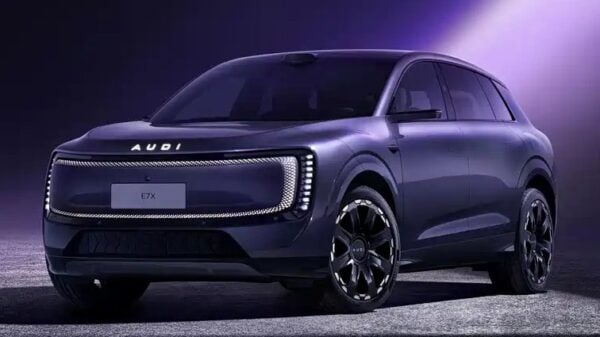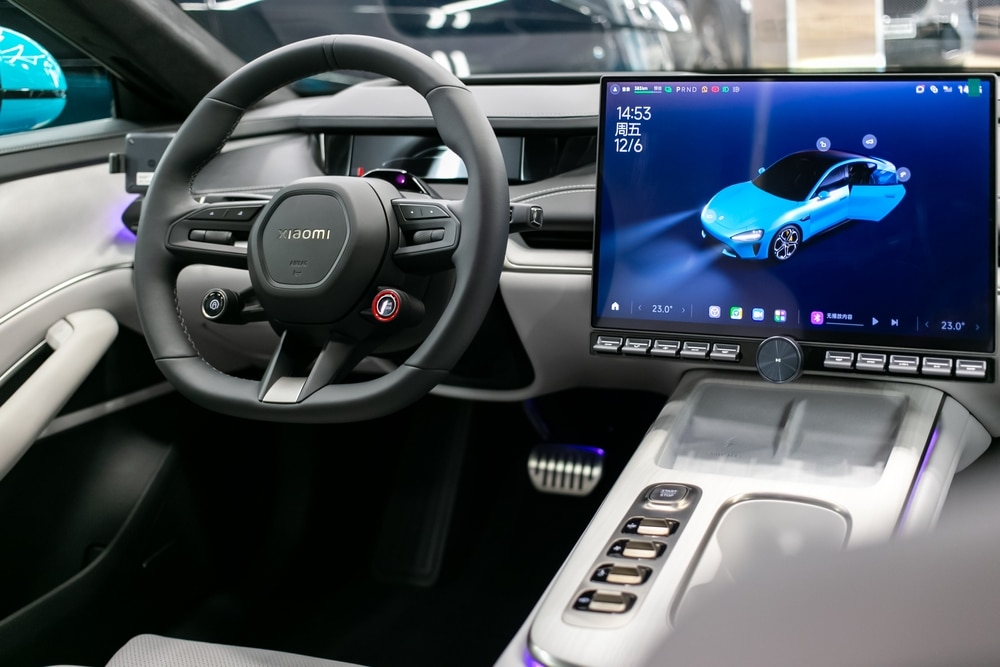Xiaomi has achieved remarkable successes in the ever-evolving landscape of electric vehicles (EVs), selling over 200,000 units of its first model, the SU7, since deliveries began in March 2024. In a mere eight months, the brand has quickly climbed the ranks, selling nearly 137,000 units in 2024 alone. To put that into perspective, this figure exceeds the total EV sales of American automotive giants Ford and General Motors, making Xiaomi a notable contender in the global electric vehicle market.
Transitioning from smartphones to electric cars might seem like a leap, but Xiaomi has embraced this change with incredible zeal. The SU7 has not only charmed consumers in China—it has even caught the attention of executives from American automotive manufacturers. Jim Farley, Ford’s CEO, has expressed admiration for Xiaomi’s impressive offerings, despite the irony that Americans currently don’t have the option to purchase an SU7. Yet, the success of the SU7 isn’t just due to its appeal; it’s about the numbers.
Xiaomi originally set a goal to sell 76,000 units of the SU7 in its first year. They exceeded this target drastically, adjusting it to 120,000, and then finishing the year with a staggering 136,854 sold—a remarkable achievement for any company introducing a new vehicle.
To understand just how significant this accomplishment is, let’s take a look at the competition. In China, Ford’s only focused EV offering, the Mustang Mach-E, managed to sell a mere 999 units, a stark reflection of their struggles in the market. Meanwhile, General Motors, while generating some sales with their brands like Buick and Chevrolet, only sold 69,403 units under those names. Even when considering GM’s additional joint partnerships and sales, both Ford and GM are struggling compared to Xiaomi’s SU7 performance.
The impact of Xiaomi’s success resonates far beyond the borders of China. In the U.S., Ford sold approximately 97,000 EVs for the year across their lineups, which include the popular Mustang Mach-E and the innovative F-150 Lightning. General Motors came in slightly stronger with 114,400 EVs sold, thanks to an array of models including the Cadillac Lyric and the Chevrolet Silverado EV. Yet, even these numbers do not come close to the SU7’s sales figures, highlighting Xiaomi’s impressive rise through sheer dedication and quality offerings.
Despite the challenges in China’s competitive EV market—which is home to over 130 different manufacturers—Xiaomi’s SU7 stands out due to its tech-centric approach and affordable pricing, which starts at under $30,000. This accessibility helps explain why consumers are lining up to purchase this innovative vehicle, with some limited production trims already sold out for 2025. In fact, the company’s order books are brimming with 150,000 vehicles waiting for delivery, showcasing not just a fleeting trend but a potential long-term success.
The speed of Xiaomi’s growth is astonishing. The company reached a significant milestone, delivering 100,000 SU7s in just 229 days—a feat that took Tesla’s Model Y almost double that time when it first launched. The second milestone of another 100,000 was reached in a breathtaking 119 days, highlighting Xiaomi’s increasing efficiency and consumer appeal.
Yet, it’s essential to recognize that the EV market is not just about sales numbers; it’s a complex space influenced by global consumer trends and preferences. While companies like Ford and GM are trying to find their footing in an evolving market that seems fiercely competitive in China, the barriers to entry for foreign companies wanting to break into the U.S. market remain high. If Xiaomi could find a way to mitigate these hurdles, particularly through reasonable tariffs, the implications for domestic automakers could be significant.
All in all, Xiaomi’s notable entry and rapid ascent in the EV sector underscore a larger trend not just within the Chinese automotive landscape but globally as well. The success of Xiaomi hints at a powerful future for Chinese automakers, positioning them as serious contenders on the international stage. As the company gears up to introduce additional models like the YU7, their influence in the industry is likely only to grow. The automotive world is watching closely, and it promises to be an exciting journey ahead for Xiaomi and the rest of the automotive landscape.
Image Source: DiPres / Shutterstock





































